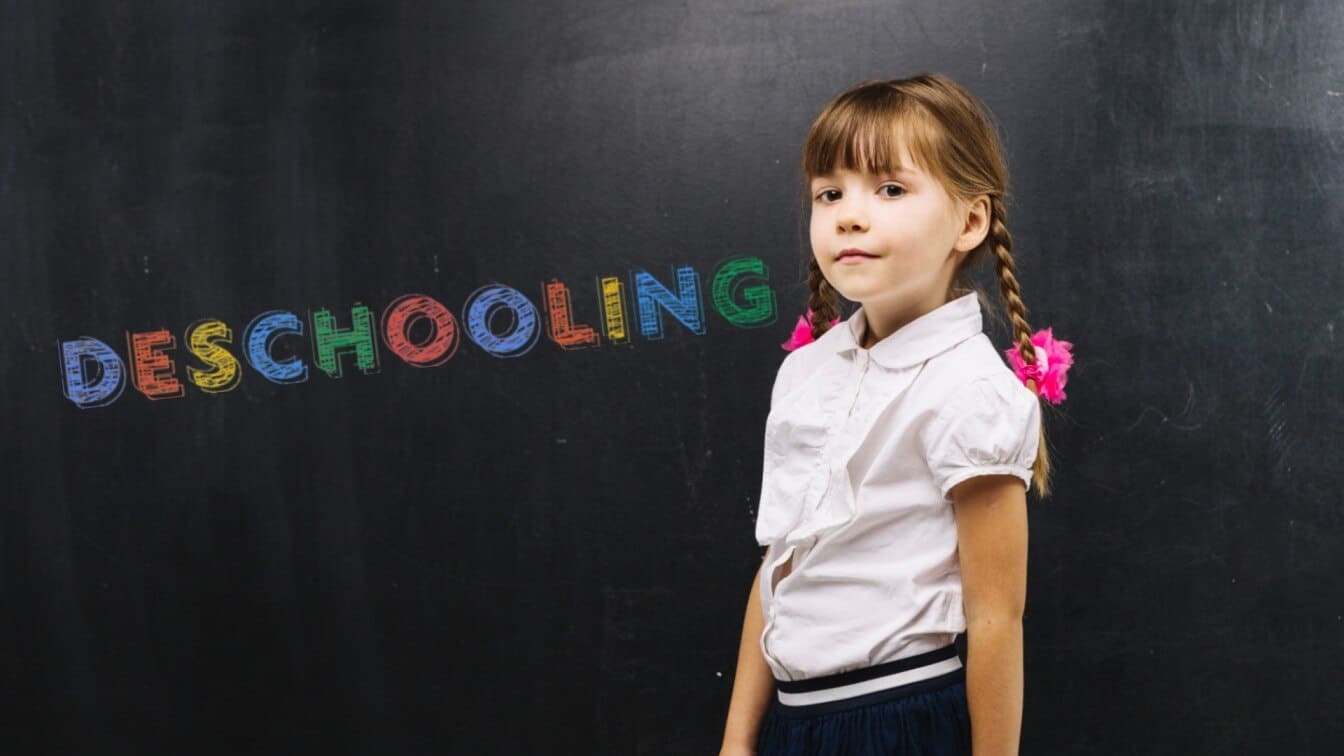Deschooling is a period that prepares both the child and the family for homeschooling. It helps them to move away from the typical habits of traditional schooling. In addition, it also clears the buildups of regular schooling like time schedules, peer pressure, or forced sleep cycles.
Let’s find the answers to the most common questions related to deschooling, homeschooling, and online schooling today
Deschooling- The Square One Stage
Both children and their families are accustomed to a typical lifestyle in a regular school. Hence, it is natural for children and parents to find it difficult to imagine a schooling schedule free from time restrictions and full of personal choices.
Back in the year 1971, Ivan Illich (an Austrian philosopher) brought his radical ideas on education to public attention. His book ‘Deschooling Society’ was one of the influential pieces of work that introduced the concept of educating a child outside the typical network of institutions.
This idea was later adopted as a preparation phase for homeschooling to help the child and the family break the shackles of typical schooling routines and norms. Let’s understand how to deschool a child.
How to take up Deschooling before transiting to homeschooling?
- Deschooling is a more relaxed phase wherein the child can enjoy his/her share of leisure, pick and choose personal interests, and most importantly, leave behind the traces of the typical school days. You can try the following points to make this transition to homeschooling seamless:
- Allow some buffer sleep time in the morning.
- Let the child enjoy nature walks, and morning park visits and connect all the experiential learning from the informal setting to the real world.
- Help the child to connect ideas through educational videos related to the newly explored things. Pick up a couple of books (genres as per the child’s liking) and allow some quiet reading time.
- Arrange for some recreational yet educational visits to places like a planetarium, a museum, or a place with historical significance.
- Take efforts for more family together by aligning meal times and taking the child along for preparation.
- Encourage the child to indulge in art, painting, craft, music, or any other hobby.
- Do not coax the child to be prim and proper. But make ensure that he/she maintains good hygiene.
- Create a relaxed and happy atmosphere that can promote learning in the long run.
- Make it fun and enjoyable by adding elements like music and dance.
- Utilize technology and enjoy virtual trips to keep your cost and time constraints at bay.
Why should we Deschool a child before homeschooling?
Educational alternatives are increasingly becoming popular amongst stakeholders. Almost 39% of parents chose homeschooling as an educational option as they believed in the advantages of the non-traditional approach to education. With the growing number of homeschooled students, the challenges also continue. Some parents face issues in adapting to the new learning environment. And many times, children too fail to make the most of home-based learning
The biggest mistake that prospective homeschool families make is to miss out on the deschooling period. This leaves the child and the parents with the impressions of the traditional school. And many times they simply try to replicate the regular school at home.
As an essential phase of transition deschooling holds importance not just for homeschoolers. But it is also beneficial for students who switch to 100% online schooling.
The process of deschooling can also have its own challenges, let’s figure out more about these.
Potential Challenges During Deschooling Phase
Phases like deschooling need a planned approach. In addition, we must preempt the challenges that this transition phase might bring along. This phase can make some children lethargic about learning. This period can also create a casual approach towards school education. All these issues can be real-time challenges for parents. However, these are workable and need a planned approach to make homeschooling or online schooling successful.
Some children might also throw tantrums or have behavior issues. And in some cases, some of them might also resist work just to prove their point that home education should be different from regular school. Do not get demotivated because of these issues. Instead, focus on building homeschooling readiness. And most importantly do not deviate from the real reason behind choosing an educational alternative like homeschooling or online schooling.
Cultivate a love for learning in the child
While the time taken to deschool a child varies, the core remains the same. The fact that families take up educational alternatives is the acknowledgment of better learning opportunities outside regular schools. Your child might need as long as a complete academic year or even a couple of months to build homeschool readiness. And remember this is when the deschooling phase must end.
If you help your child to develop an inquisitive attitude and cultivate an endless love for learning (by making it joyous), the child is likely to be an independent homeschooler very soon. Identify the strengths, learning styles, intelligence type, and overall temperament of the child. And explain education to every possible learning opportunity in or outside the home.
Final Thoughts
We are fortunate to live in an era where homeschooling is more convenient than ever. Accredited online schools can readily serve the same purpose as typical homeschooling. You can choose to homeschool a child and be a part of this new learning paradigm. Do not miss out on checking the homeschooling laws in your region. And do research on the best ways of utilizing the Deschooling period.




